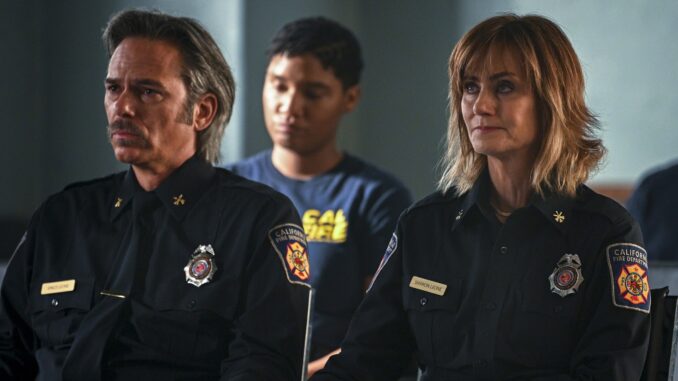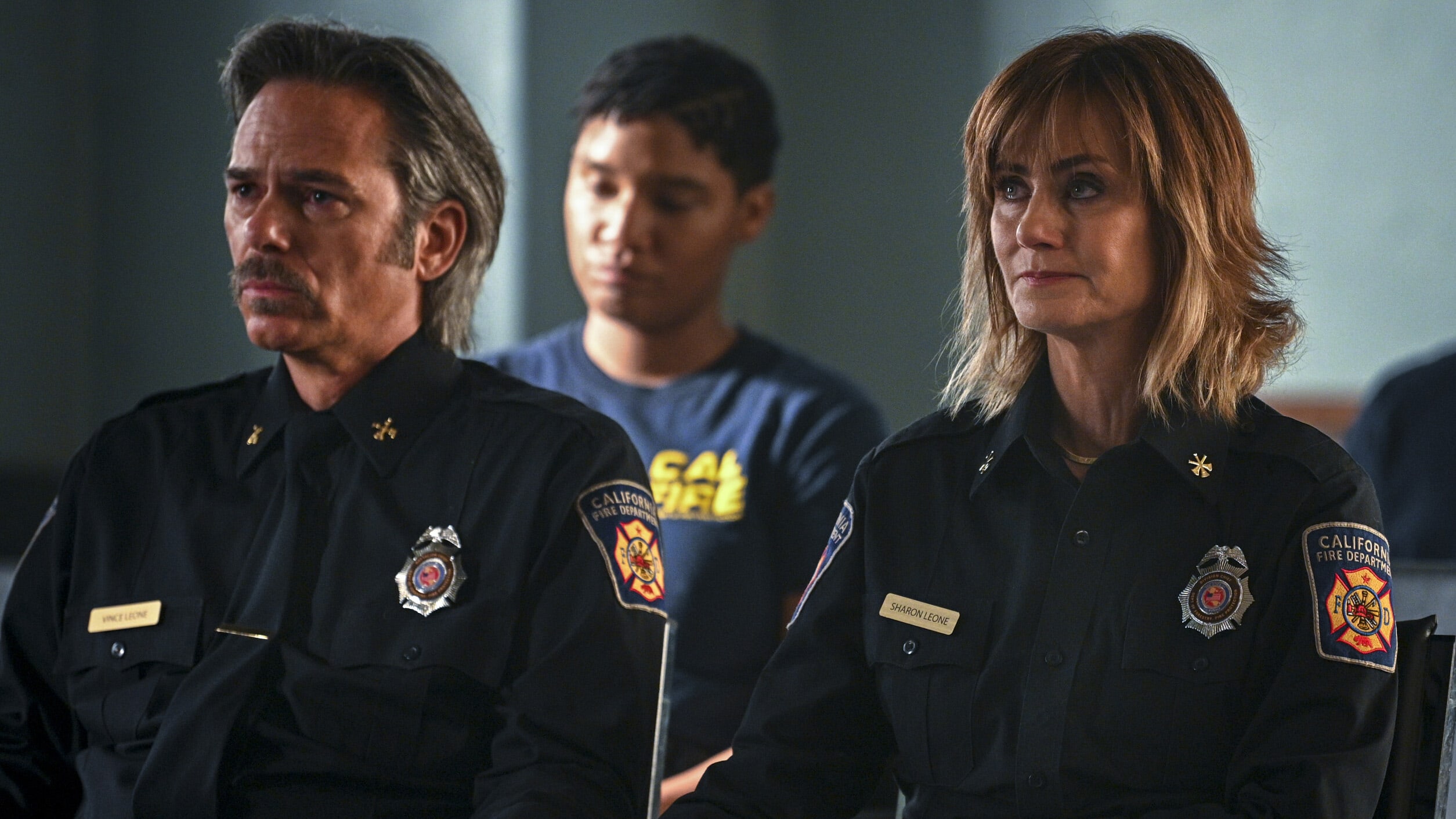
The hum of the set, the camaraderie of shared coffee breaks, the unspoken language between scene partners – these are the subtle threads that weave the fabric of a television series. When one of those threads is suddenly cut, the entire tapestry shivers, and a melancholy echo resonates through the cast and crew. Such was the case for the Fire Country family when news broke of Billy Burke’s departure as Vince Leone, a departure that Diane Farr, who played his on-screen wife Sharon, succinctly and poignantly encapsulated: “It was a sad day.”
This statement, seemingly simple, unfurls into a complex landscape of loss – personal, professional, and narrative. It speaks to the dissolution of a powerful on-screen partnership, the rupture of an off-screen bond, and the profound shift in the very soul of a story that hinged on a central love.
For the audience, Vince and Sharon Leone were more than just characters; they were the emotional anchor, the sturdy oak around which the turbulent winds of Edgewater’s firefighting community swirled. Their marriage, weathered by shared tragedy, professional peril, and the trials of parenting a troubled son, was a beacon of resilience. Billy Burke embodied Vince with a rugged authenticity, a man of few words but deep integrity, whose quiet strength was the perfect foil to Sharon’s fiery determination. Opposite him, Diane Farr crafted Sharon as a formidable matriarch, her compassion as fierce as her will. Their scenes together were a masterclass in lived-in comfort, a dance of unspoken understanding that conveyed decades of shared history. When they bickered, it felt real; when they embraced, it resonated with the weight of unwavering devotion. Losing Burke meant not just losing Vince, but losing half of that essential dynamic, leaving a tangible void in the heart of the show.
But beyond the meticulous crafting of fictional personas, there exists the very real, very human connection forged between actors. Day in and day out, they inhabit intense emotional spaces together, relying on each other for cues, support, and the magic of spontaneous improvisation. Diane Farr and Billy Burke, as an on-screen married couple, undoubtedly developed an intimacy and trust that transcended the script. They were each other’s primary scene partners, navigators of countless emotional arcs, and confidantes in the shared endeavor of bringing complex characters to life. When Farr speaks of a “sad day,” she reflects the void left by a trusted sparring partner, a fellow traveler on the challenging, exhilarating journey of episodic television. It’s the loss of the specific rhythm they had established, the shorthand they shared, and the unique energy only they could create together. It’s akin to a musician losing their long-time bandmate – the music might continue, but the particular harmony will forever be altered.
The departure also casts a long shadow over the narrative possibilities for Sharon Leone. Her character was deeply intertwined with Vince; their lives were a continuous braid. Now, Sharon faces a future that is dramatically, perhaps agonizingly, different. How does a wife, so deeply connected to her husband, navigate this new, solitary path? Will she find strength in her independence, or will the absence of Vince leave an indelible mark on her spirit? Farr, as the actress embodying Sharon, must now explore a new emotional landscape, one defined by grief, adaptation, and the raw courage required to carry on. This creative challenge, while potentially rewarding, begins from a place of narrative bereavement. The “sad day” for Farr is not just about the past, but also about the unknown and challenging future of her character.
Ultimately, Diane Farr’s reflection, “It was a sad day,” is a testament to the profound impact of professional relationships and the power of storytelling. It reminds us that even in the world of make-believe, real emotions are invested, real bonds are formed, and real grief is felt when those bonds are severed. It’s a poignant acknowledgement that while the show must go on, the absence of a pivotal character and a cherished colleague leaves an undeniable, lingering ache, a silence that speaks louder than any dialogue. It was indeed a sad day, not just for the actors, but for everyone who had come to cherish the unwavering heart of Fire Country.
